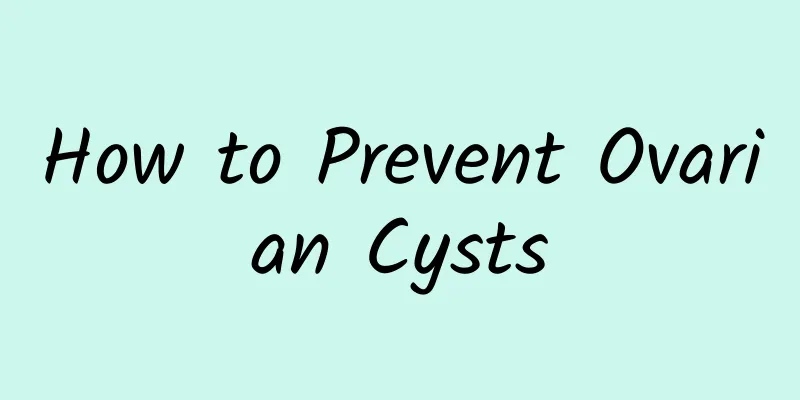Will curettage cause irregular menstruation? There are 5 treatments for irregular menstruation.

|
Normal menstruation is an important sign of mature women's health. Many female friends will experience irregular menstruation. There are many reasons for irregular menstruation. So what is the reason for irregular menstruation after curettage? How to treat it? Doctors say: It is common for women to not have their periods after curettage, so they should go to the hospital for a checkup in time. Here are some details: 1. Female menstruation is the result of the interaction between the cerebral cortex, hypothalamus, pituitary gland, ovary and uterus, and is regulated by neuroendocrine. When people are in a state of excessive tension, fear, sadness, fatigue and surgery, the functions of the hypothalamus, pituitary gland, ovary and uterus can be suppressed through the neuroendocrine system, leading to menstrual disorders. 2. After curettage, endocrine changes occur, especially the sudden drop in chorionic gonadotropin levels, which makes the ovaries unable to respond normally to the gonadotropin from the anterior pituitary gland, causing amenorrhea. 3. During the painless curettage surgery, the basal layer of the endometrium is severely damaged, the functional layer of the endometrium is damaged, and the endometrium cannot regenerate, leading to long-term menopause in patients. 4. Multiple curettage in a short period of time will seriously damage the base of the endometrium, leading to gynecological diseases such as irregular menstruation. 5. Endometritis after curettage can cause adhesion of the uterine cavity due to inflammation, which can also lead to scanty menstruation or amenorrhea. Most of these patients have symptoms such as fever and lower abdominal pain. In fact, for most female patients: irregular menstruation after shaving is very common. Some will return to normal after a period of time, and some need treatment. So how to treat it? 1. You may experience mild lower abdominal discomfort, pain or a small amount of vaginal bleeding on the day after curettage. If the abdominal pain is severe or the vaginal bleeding or prolonged bleeding occurs, you should seek medical attention immediately; Within 2 weeks after surgery, patients should rest in bed appropriately, eat more nutritious food, and avoid heavy physical labor; 3. Pay attention to the cleanliness of the perineum. When there is vaginal bleeding, bathing and sexual intercourse are prohibited; Pay attention to contraception to avoid pregnancy again. |
>>: What are the causes of irregular menstruation in women?
Recommend
Expert introduction: How long does it take for menstruation to come after abortion?
What are the symptoms after an abortion? How long...
What are the symptoms of severe cervical erosion?
Cervical erosion is a disease of women. Severe ce...
Can premature ovarian failure eat coix seed?
Patients with premature ovarian failure can eat c...
Three major types of ovarian cyst patients
Ovarian cyst patients can be divided into physiol...
Do I need surgery for mild cervical erosion? Four major problems that women must know about mild cervical erosion
Although mild cervical erosion is the mildest cer...
What should we pay attention to when we have leukoplakia of vulva?
The most common thing to pay attention to about v...
Causes of ectopic pregnancy
Ectopic pregnancy refers to pregnancy that occurs...
Experts specifically introduce common symptoms of cervical hypertrophy
For female friends, if they want to treat cervica...
Is it still possible to get pregnant with an ectopic pregnancy?
Is it still possible to get pregnant with an ecto...
Symptoms of amenorrhea caused by phlegm-dampness blocking the collaterals
Symptoms of amenorrhea that may be caused by phle...
Is there any shadow? Eating rice to lose weight can avoid starvation
Rice has always been an inconspicuous but indispe...
What are the symptoms of ovarian cysts?
Ovarian tumors are common tumors of the female re...
Experts explain the precautions for ectopic pregnancy that need to be watched out for
There are some precautions that patients with ect...
What factors affect women's menopause?
Menopause not only harms our body, but also tortu...
Ractopamine beef ban lifted, cattle and pig separation not included in law
The issue of whether our country will open its do...









